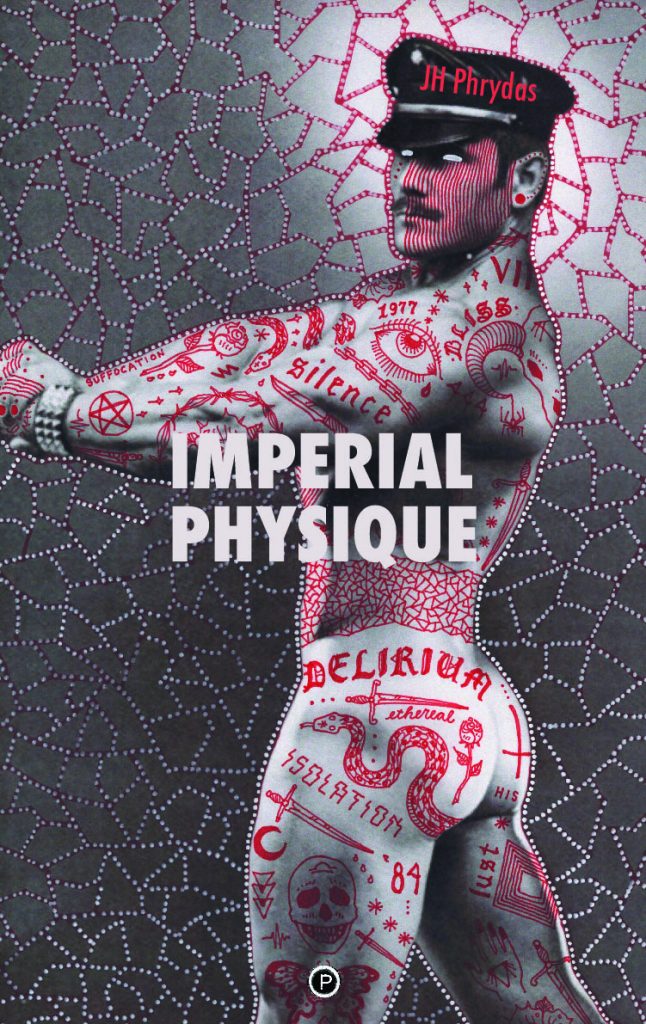In 2008, JH Phrydas wrote a story about how bodies talk without words. He wanted the story to not just describe the silent ritual of nonverbal communication but to perform it. The interaction would be visceral – the exchange melancholic, yet full of lust. He wanted words to retain the unsayable: the subtle movements of a body in heat. In the years since, Phrydas kept rewriting this story, using different techniques, different syntaxes and forms, in hopes that he would find a successful method of gestural writing.
Imperial Physique is a collection of these attempts. They explore the way our bodies hover between animal and human, civil and wild. The bleakness – and underlying verve – of imagining Western empires in decline serve as a backdrop for a lone figure searching city streets, decaying architecture, and sand dunes for some type of physical connection. What arises is the loss of – and longing for – touch at the edges of imperialism, historical violence, and personal shame.
It’s messy, I know—it can’t not be—but might we lean toward a potentially more candid topology that prioritizes our bodies and how they interact? What is at stake in positioning ourselves as animal—wild—when safety, or lack thereof, is an inherent force of carnality? What are the politics of a visceral life? Does cruising bring about the destruction of religiously and politically sanctioned notions of decency—self-worth—the social bond of our moral and ethical requirement? Can we cruise and, in the circling, dissolve structures that ensnare us?
Paired with these stories are essays on queer embodiment, figuration, and plasticity that emerged through conversations with somatic psychologists, art therapists, and poets. They give context to the short stories and offer other ways to engage with the book: through thinking of language as texture, as sculpture, as a physical yearning against empire. The place where language and the body merge.

